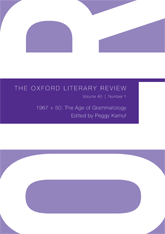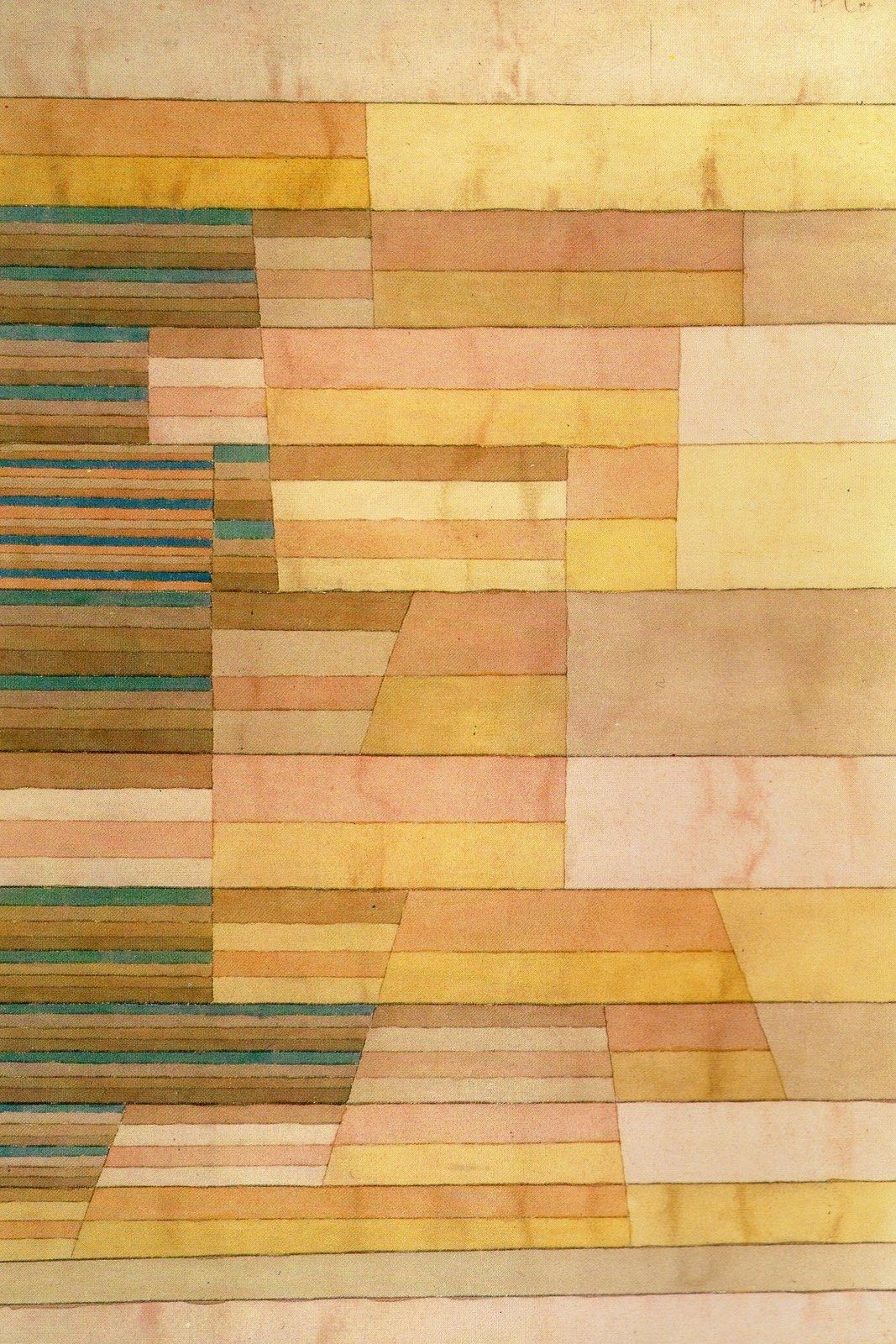
Fifty years have passed since the publication of Of Grammatology, and the Oxford Literary Review has dedicated its July 2018 issue to marking “The Age of Grammatology”.

In my contribution to this issue, Misreading Generalised Writing: from Foucault to Speculative Realism and New Materialism, I interpret a curious trend in the reading or misreading of generalized or arche-writing, terms Derrida introduces in this work. Though it became one of the most contentious notions of his philosophy, especially in reference to his claim that “there is no outside-text,” it has been more frequently misread than read in the intervening half-century, especially by its critics.
Derrida used generalized writing to refer to something like writing, whose predicates (being the signifier of another signifier, absent from its author and severed from context, etc.) could be found in every aspect of existence. And arche-writing referred to something like writing, present in absence at the origin, prior to speech with a priority that is no longer merely logical or chronological. If the origin of writing is imagined as the break with the self-presence of the idea in thought or speech, arche-writing names this break without a prior presence or self-presence from which to derive it as a fall.
That is, generalized writing was a deconstruction of the traditional concept of writing. Nevertheless, Derrida’s work was interpreted as though he claimed that there was nothing outside text in the traditional sense, as though we were locked away in a library or the pages of a book. One finds this misreading already at work in writings from the late sixties and early seventies by Foucault and Deleuze and Guattari, and it has remained the most common angle of attack against Derrida for fifty years.
Its most “contemporary” form stems from the correlation posited by Quentin Meillassoux in After Finitude. According to Meillassoux, all philosophers since Kant have relied on anthropocentric concepts, from which one must escape to access being or things in themselves apart from human thinking. In order to make Derrida fit within the corral of corralationism, he must be misread, attributing to him the very classical, humanist conception of language that he deconstructed.
Though there is little concord about precisely what predicates should be placed within or outside this corralational form, and which authors belong inside or outside it, it has become the most common way to signal the contemporaneity of certain academic fields, such as those calling themselves Speculative Realism and New Materialism. Among the many issues one could raise with respect to this corralation, I will point out here only the linear representation of history and progress in a discipline on which it is premised.
It is precisely this notion of linear progress that deconstruction and generalized writing make impossible. The relentless misreading of Derrida’s work always serves the purpose of reinstating such a progressivism (or a conservativism, which we could predict would be in essence the same). If the predicates we deploy to separate two texts, authors, or historical or intellectual periods are undecidable, then it is impossible to claim that we have passed from one to the next. Ironically, the misreading of Derrida these authors perpetuate depends on precisely the humanistic notions they claim to surpass, such as, for example, a notion of history as the autonomous advance of the decisive, voluntaristic subject who sacrifices the previous generation to prove its own agency.
My purpose in focusing on the necessary misreadings implied in the corralational form is not to dismiss the work that relies on it. Rather, I would encourage us to find a different method for valorizing our work than the violent assertion of its contemporaneity. Thinking our relationship to the “past” otherwise could only benefit the investigations of science and matter undertaken in these fields, as well as our understanding of these never-simply-past texts.

The Oxford Literary Review devotes itself to outstanding writing in deconstruction, literary theory, psychoanalytic theory, political theory and related forms of exploratory thought.
Jonathan Basile is a Comparative Literature Ph.D. Student at Emory and the creator of an online universal library, libraryofbabel.info. His first book, Tar for Mortar: “The Library of Babel” and the Dream of Totality, has been published by punctum books.





